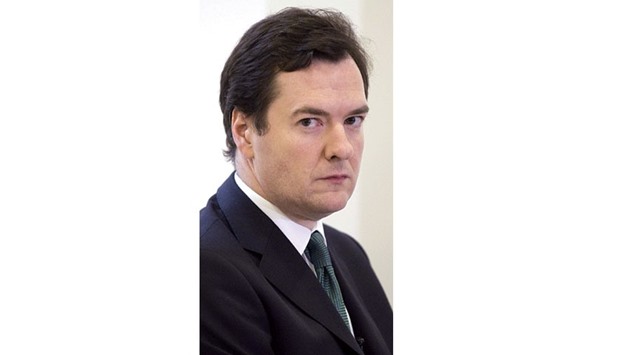The Labour party yesterday demanded the finance ministry explain how it arrived at a back tax payment by Internet giant Google that has put the government on the back foot.
The settlement of £130mn for the period since 2005, announced just over a week ago, was hailed by the government as a major success but criticised by other parties, and could be examined by European Union anti-trust regulators.
In a letter to Conservative Finance Minister George Osborne, Labour’s parliamentary spokespeople for finance and justice asked him to provide more information on the deal to restore public trust in tax authorities.
“We would urge you to address the widespread concerns that have been expressed about the lack of transparency surrounding the deal,” Seema Malhotra and Charles Falconer wrote in the letter.
They asked for additional information on whether diverted profits tax had been levied on Google, and further details on the basis that authorities had used to arrive at the figure of £130mn.
Google says it is paying all the tax that is due.
Tax avoidance has become a hot political issue in Britain, where people question whether the burden of strengthening public finances has been shared fairly.
Labour leader Jeremy Corbyn has already challenged Prime Minister David Cameron to defend the deal, and the party has called for an investigation by the National Audit Office, while the Parliamentary Public Accounts Committee (PAC) has said it will investigate the arrangement.
Meanwhile, a leading authority on tax and spending said the deal highlights the need for a radical overhaul of the international tax system.
The Institute for Fiscal Studies (IFS) said governments should consider going back to the drawing board to develop a tax system that accommodates multinationals which currently escape making corporation tax payments in some countries.
The intervention by the thinktank will put further pressure on Osborne to explain the deal.
Transport Secretary Patrick McLoughlin has defended the deal which experts said amounted to an effective tax rate of 3%, but said he would like to see the US-based search firm pay more tax in the future.
McLoughlin was speaking after MPs demanded that HMRC and Osborne explain the basis for the tax deal.
Google said it would comply with reforms agreed by members of the Organisation for Economic Co-operation and Development (OECD), which includes all the major economies. As a consequence, Google would pay tax on profits generated from adverts on its UK site.
But the IFS said that while the OECD’s new tax rules would prevent some tax avoidance, it represented an extra layer of rules on top of a creaking system dating back to before World War II.
In a chapter from its Green Budget, published ahead of the chancellor’s spring budget in March, the thinktank said: “It is open to government to pursue a much more radical course of action: to scrap the corporate tax system as we currently know it and write a new one that better serves our objectives.
“The world has changed enormously since the current system was designed in the 1920s. Companies’ activities have become more global, digital and intangible.”
A system that forces companies to show their group activities - and therefore how their revenues are made in each country - would shake up a system where profits are allocated as if they were earned by separate companies within the group.
Google charges its UK operations for the costs of software development at its US headquarters. This fee for using the holding company’s intellectual property is then deducted from the UK subsidiary’s profits, alongside the costs of any loans made by Google’s head office.
The IFS said: “We could tax companies based on where their sales occur rather than where their profits are deemed to have arisen. We may not be ready for such radical change yet, but, depending on how well the newly patched up international corporate tax system works over the next few years, we may find it is worth considering whether a new set of tensions would produce a more agreeable outcome.”

George Osborne Chancellor of the Exchequer
